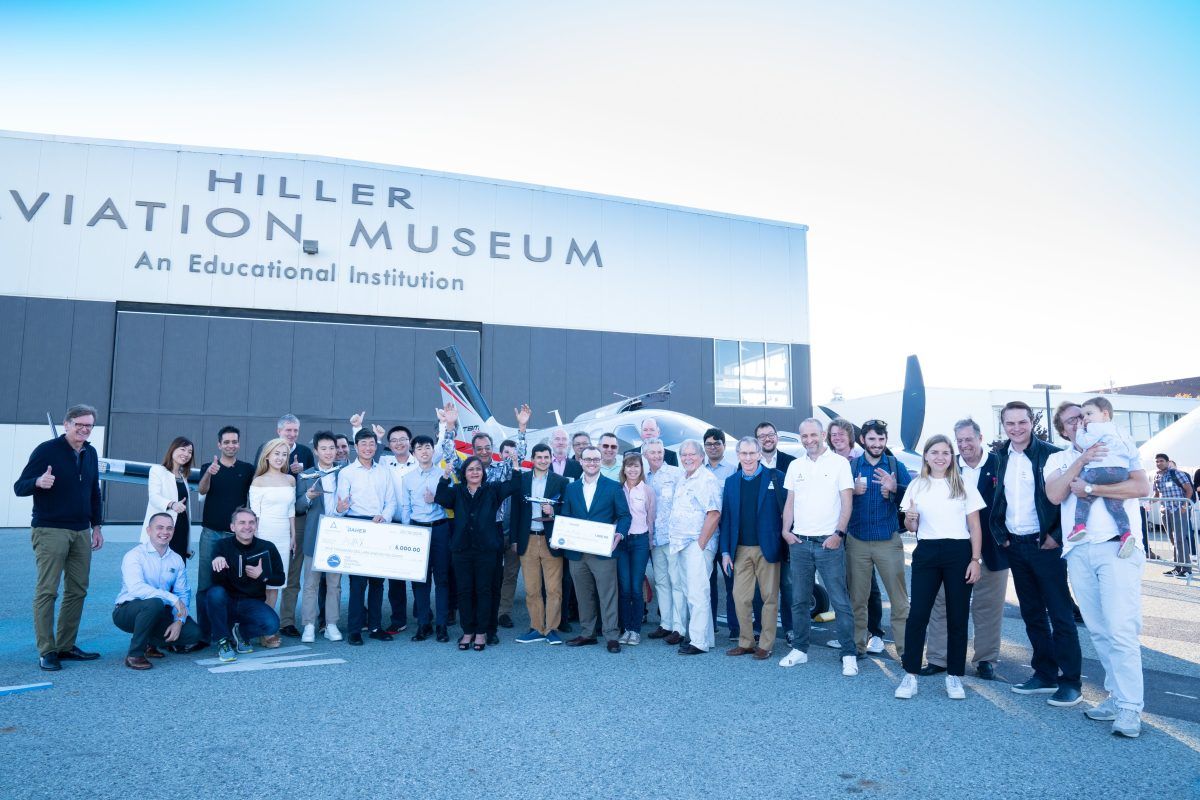Daher’s “General Aviathon” hackathon winners are three innovative concepts for improved flight safety and enhanced passenger experience
10/28/2019
San Francisco, California, USA, October 28, 2019 – Daher’s first-ever general aviation hackathon has chosen three winning concepts that proposed highly imaginative solutions to further increase flight safety for the company’s TBM very fast turboprop aircraft and enrich the in-flight experience for passengers.

The “General Aviathon” challenge was organized by Daher’s Silicon Valley-based innovation program, Armstrong by Daher, and the winning ideas were selected this month following a competition that attracted an initial field of 25 proposals from the United States, China, India and Mexico.
The hackathon was focused on two themes related to the TBM’s operation:
– advanced features and capabilities to make the aircraft more connected, intelligent and autonomous;
– and innovative solutions to further refine the experience of piloting and using the TBM.
We are extremely satisfied by the range and scope of ideas proposed in the General Aviathon, which came from individuals, students, startups and established companies. This year’s competition clearly demonstrated how novel ideas from outside the traditional aviation sectors can be proposed to modernize procedures, improve safety and increase comfort in the general aviation sector.
Didier Kayat, daher ceo
Selection of the winning concepts was made by a jury composed of representatives from Daher and its hackathon technology partner, Microsoft, as well as from San Francisco-area startup companies, accelerators and the academic community. The pitches from 11 finalists were made during an event at the Hiller Aviation Museum in San Carlos, California, with more than 100 people in attendance. Each winner received a cash prize of $5,000, and they have the potential of partnering with Daher in further development/deployment of their solutions if relevant and applicable to the TBM.
One of the hackathon’s winners was the Aviation Voice Recognition System (AVRS), proposed by Adam Kaplan and Ben Krosner, two engineers at the Massachusetts-based Scientific Systems Company, Inc. Their AVRS is a software package capable of parsing and understanding instructions from air traffic controllers to make changes in the aircraft’s flight profile (such as climbing, descending and turning), which would be implemented subject to the pilot’s approval.
Leveraging the Microsoft Azure public cloud computing platform for acoustic modeling, the AVRS’ development would focus primarily on an aviation-centric language model created with real-world audio examples from air traffic control. By processing ground-truth flight data from the aircraft’s flight deck avionics (including location, altitude, and flight plan), the AVRS’ computations could be handled onboard –removing the need for cloud computing.
Also selected as a safety-related winner of the General Aviathon was an idea for virtual pilot monitoring on the TBM, providing verbal guidance based on images processed from cockpit cameras to assist the pilot in flying the aircraft. The “TBM Monitoring Pilot” proposal was submitted by Vijay and Meera Singh – husband and wife entrepreneurs who own and fly a TBM 900 aircraft based at Somerset Airport in New Jersey.
As TBM aircraft are typically operated by a single pilot, the “TBM Monitoring Pilot” would offer assistance by using a processor to perform object recognition, and then providing audio guidance to the pilot’s headset based on a deep learning training set. Advantages of this proposal include the use of off-the-shelf processors developed for autonomous cars, as well as working with a finite set of objects to be recognized for rapid training of the system using artificial intelligence and machine learning.
The hackathon’s third winning entry, “Avia-X,” proposed a real-time passenger experience system conceived by four students at the University of California – Berkeley: Alan He, Frank Ge, Gary Yang and Ken Guan. Avia-X would enhance the on-board environment with pre-set themes and emotion recognition for light and music, potentially expanding to include an olfactive experience. “Avia X” could be managed via the “Me & My TBM” cloud-based application for Android and iOS devices, which has been developed by Daher to support TBM owners and operators in their tracking and following of operations and maintenance.
Media contacts:
Jeffrey Lenorovitz
The InfoWEST Group
E-mail: jleno@infowestgroup.com // Office: +1 703 560-6330
Mobile: +1 703 615-3646 // Int’l mobile: +33 (0)6 80 85 86 25